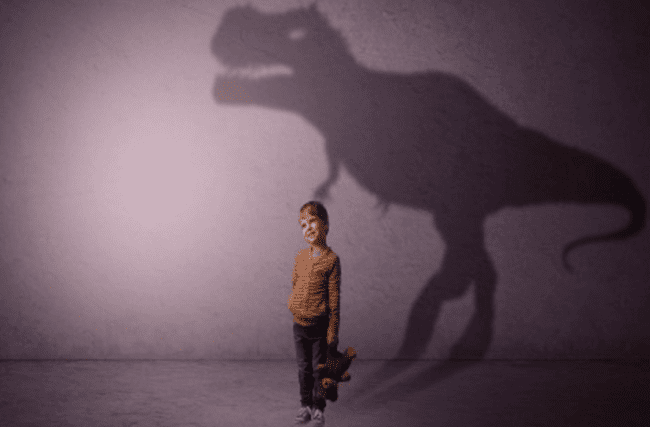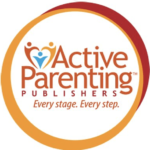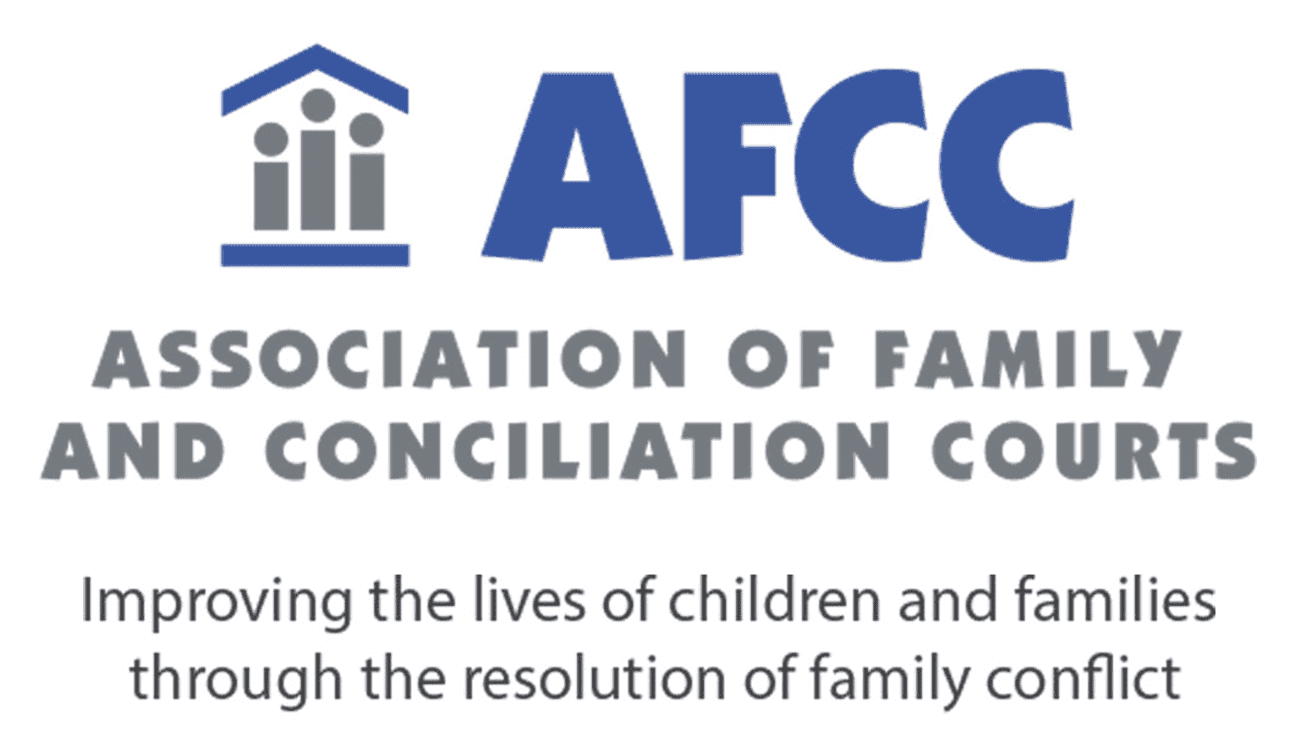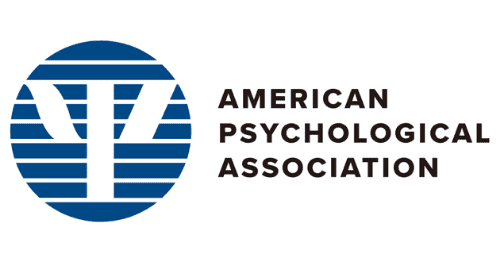ADHD Parenting

The article below is for every caregiver regardless of a child’s ADHD diagnosis. As a caregiver, parent, guardian, grandparent there are strategies that we can learn to lessen relationship conflict. Hale Strategies wants to offer you those skills and strategies.
You can’t teach your child conflict management skills or calming strategies when you are triggered yourself. Instead, follow these simple, practical steps toward being the best example of moving from a lizard brain to a brain wizard.
By Rebecca Branstetter, Ph.D. in the online magazine: ADDitude Inside the ADHD Mind
Updated on July 8, 2022
I saw a parenting meme in my feed the other day that hit pretty dang close to home.
It was a split screen of how parents start their day (as the happy, soft-spoken dinosaur from Toy Story and how they end their day (as the terrifying T-Rex from Jurassic Park roaring one inch from your face).
I feel that.
We all start out the day fresh and ready to be positive, proactive, and empathic with whatever challenges our children are facing. When we’re rested, we typically have the patience to respond calmly when they are reactive or having a hard time (like when a toddler screams and throws a tantrum because there are RAISINS in her RAISIN Bran… hypothetically speaking, of course). As the day wears on, parental patience wears thin, and we tend to be more reactive, triggered, and annoyed when our children act out or shut down.
Complicating matters is the inescapable fact that our baseline for maintaining inner calm has moved. Most parents are operating with a higher level of stress than they did before the pandemic. After a year of disrupted lives, strained finances, and tight living quarters shared with a roller coaster of emotions, there’s plenty that can trigger our inner T-Rex.
Our kids are under unprecedented stress, too. Their tolerance for this stress may also be smaller than usual. And if your child has ADHD or emotional reactivity challenges, they may go from happy Rex to full Jurassic Park in seconds flat.
Given this stressful dynamic, it’s no wonder we’re all buckling under the heavy load of big reactions — whether it’s blowing up or shutting down — from things as small as raisins or as big as an outbreak at school.
Lizard Brain Vs. Wizard Brain
Neither parent nor child wakes up in the morning planning to be a terrible lizard.
When stress is triggered in either parent or child, two spooky sci-fi things happen (nope, I’m not talking about extracting-DNA-and-recreating-dinos kind of sci-fi. This is even spookier).
[Read: Recognizing the Stressors That Paralyze ADHD Brains]
Spooky Sci Fi Fact #1: We are evolutionarily pre-programmed to match others’ emotions before we can even mentally register that we are doing it.
This means that stress and uncomfortable emotions like anxiety, anger, and sadness are highly contagious. We “catch” the stress from our kids, and our kids “catch” it from us.
Y’all, the whole process takes milliseconds.
When your kid flips out and gets angry because you calmly ask them to put away their dirty socks, your calm turns to anger before you can even register it consciously. When you are stressed out about an email that pops up on your phone from work and you feel tense, your child feels that same tension as if it were their own.
Spooky Sci Fi Fact #2: All stress, big or small, real or imagined, registers the same way — DANGER! — and we go into the “brain stem,” the part of the brain responsible for survival.
This primitive part of the brain literally does not know the difference between the stress of struggling with a math assignment or the stress of a saber-toothed tiger. Either way, the amygdala, the fear center of the brain, lights up like a Roman candle and we go into fight or flight mode (or the modern-day version: acting out or shutting down).
With kiddos, I sometimes call it “lizard brain” because primitive responses to stress do not involve logic or thinking. All our “brain juice” (term I just made up) goes to survival and we don’t have any cognitive resources left for thinking straight.
As I teach in my online positive parenting courses, problem solving cannot occur in “lizard brain” mode. Yet, when our kids get stuck in the brain stem, it’s soooooo tempting to address them with logic, problem solving, or a valuable adult life lesson such as: “When a company advertises a product with raisins, it likely has raisins in it! So just eat it!” or, “It’s just a math worksheet. It will only take 10 minutes, so just calm down and finish it!”
It doesn’t take much imagination to picture how these life lessons go over in those lizard brain moments. Yep, your child may go full Jurassic on you. Then, you instinctively go Jurassic on them and there’s two angry dinos in the room (see Spooky Sci-Fi fact #1).
Tapping Into the Wizard Brain
You might be thinking, “OK, great, so basically we are destined to trigger and re-trigger each other all day long?”
Nope! I have good news for you.
You have a fully developed wizard brain (frontal lobe — the “stop and think” part of your brain that is built to pause and respond skillfully, with calmness.
And the even better news is that calm emotions are also contagious! When you come into a situation with calm, it triggers calm in your child. When you take a pause before responding to your child’s anger, their anger subsides. This process of up-regulating or down-regulating your child’s emotions is called “co-regulation.” You can bring calm or chaos to a situation by how you respond.
And once both parties are calm, problem solving can begin. Our “wizard brains” (frontal lobes) are back online.
But how do parents cultivate inner calm amid craziness? What sounds good in theory is much harder to do when you’ve been triggered.
The following strategy for keeping calm in a stressful situation with your child is simple, but it is not necessarily easy until you remember and practice this: Take care of yourself first. Escalated parents can’t de-escalate their children. Your calm teaches your child calm.
Wait! Don’t go!
This is not the part where I tell you to practice self-care: take up yoga, practice meditation, and carve out heaps of “me time.”
Don’t get me wrong; self-care is great, but those are things you do “off the job” as a parent. They can lengthen your fuse, but the fuse is always still there.
The problem with self-care activities is that it’s hard to do them in the Jurassic parenting moment. You can’t just bail on your wailing, dysregulated kid and drive off to a yoga class right then and there.
So, this is the part where I share what can you do “on the job” when the stressful moment is actively going down.
What To Do When the Lizard Attacks
First, become aware when you’re being triggered. Is it a bodily sensation, like a tight chest or clenched jaw? Or is it a thought like, “Why are they giving me such a hard time?” or “How many times do I have to tell them?” or “Why are they making such a big deal over nothing?” If you can catch the thought or feeling before you respond, that’s huge.
Second, practicing empathy is the fastest route to calming yourself and your child during a heated moment. Remind yourself that your child is in “brain stem” and in a moment of suffering, too. They aren’t giving you a hard time; they are having a hard time.
Third, this one tip from the fabulous Kristen Neff, self-compassion researcher, has been a game changer in my parenting, especially during the heightened emotional reactivity in the pandemic: In a Jurassic Moment, I do a “one for me/one for you” breath before responding. One breath for me (I am having a hard time) and one breath for my child (this is hard for you, too). It helps me stay calm and helps model for my child how to pause before responding and how to empathize in challenging times.
And speaking of self-compassion, remember to give yourself self-compassion if you T-Rex out from time to time! If you lose your cool with your child, it’s okay. It’s human. It happens, especially when we are under stress and have a shorter fuse than normal.
Take the time to apologize to your child — it’s a teachable moment. When you say, “I am sorry I yelled. I was feeling frustrated and next time I will take a few deep breaths,” you are teaching them what to do next time they are frustrated or make a mistake.
Hale Strategies is dedicated to helping caregivers with conflict management strategies for conflict resolution. Learning best practices when children have learning differences is critical in resolving conflict in your relationship. Being the role model in conflict management for the child at home and at school will be of great benefit.
Contact Hale Strategies for more information about ways you can learn mediation and conflict management strategies.
Lizard Brain: Next Steps
- Guide: ADHD and Emotional Regulation
- Read: Take a Deep Breath — Teaching Kids to Control Emotions
- Download: Rein In Intense ADHD Emotions









